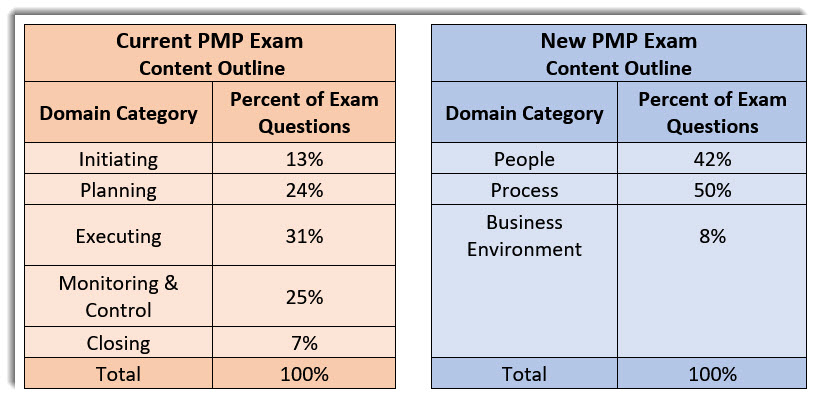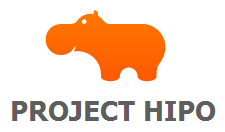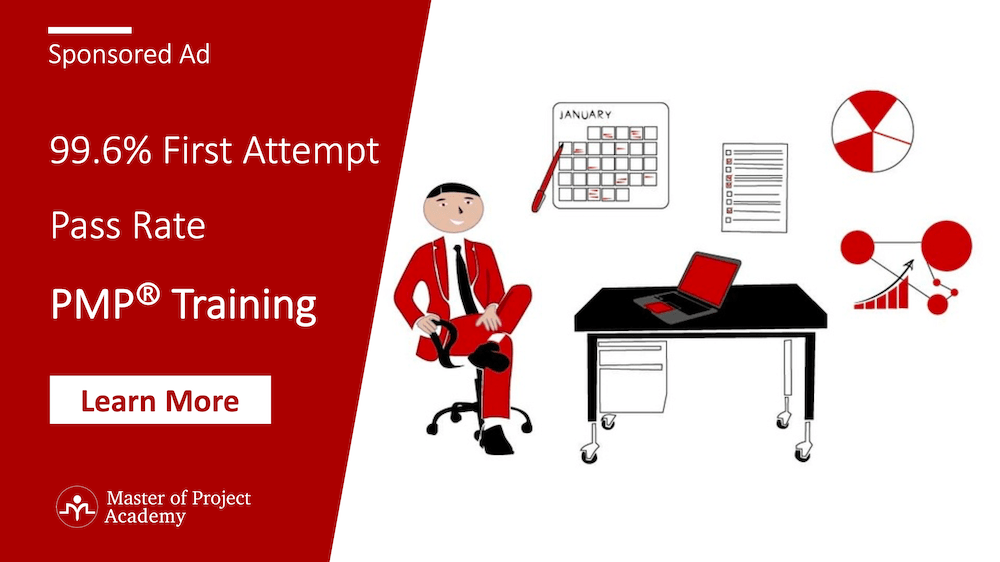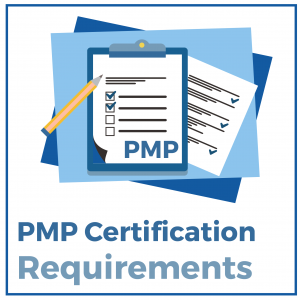Are you a team leader or project manager who wants to prove his capability of managing projects? Or are you someone who wants to learn to bring a project to completion? Or maybe are you a manager who wants to validate their expertise in project management? If any of your answers are yes, then the right certification for you is PMP certification.
Achieving this certification is indeed a big asset to your career as it will build your credibility. Besides, it can bag for higher billing rates from clients in projects. Also, it will open doors to new clients and offers international recognition. Therefore, investment in this certification is the right decision as it represents a high level of professionalism and experience which boosts your credibility in the market. In this article, we will provide insight into what is PMP certification, its history, evolution, requirements, cost associated and also the exam changes in 2020.
What is PMP?
PMP is a globally recognized professional certification. Project Management Institute (PMI), a US non-profit professional organization offers this certification. A well recognized and respected credential, Project Management Professional certification is considered essential for the project managers, mainly for those who wish to take the next step in their career.
Furthermore, this is the most sought-after project management certification internationally. Regardless of your background, achieving Project Management Professional certification is the quickest way to re-energize your career and create new opportunities for professional growth.
Why PMP is popular?
Project Management Professional (PMP) Certification is the most important and industry-recognized certification for project managers.
Moreover, this certification is truly global. This means, once you become PMP certified, you can work virtually in any industry, any location, using any methodology irrespective of any geography or domain.
Undoubtedly, this certification is the most acclaimed PM certification across the globe. It is also considered to be the gold standard of project management.
Furthermore, PMP Certification validates your expertise in project management. Also, it recognizes your ability to manage projects to completion. But it doesn’t matter whether you are having the title of the project manager or not. Because what matters is that you are someone who can bring the project to completion.
In addition to the above, this certification benefits the employee as well as employers. Because if you compare the employee’s PM salary, PMP certified individuals garner a higher salary (on an average 25% more) than non-certified individuals.
Why PMP is important for your career?
In regard to employers, in the organizations having more than 1/3 of PMP certified project managers. Thus, more of the projects get completed on time, on budget and meeting original goals.
This certification also tells employers, peers and the world that what you are doing in project management.
Above all, Project Management Professional Certification signifies that PMP certified individuals speak and understand the global language of project management. Further, it connects you to a community of professionals, organizations, and experts worldwide.

Thus, to move forward in your project management career, you need a resume that makes an impression on recruiters with the right skills and knowledge. Because these days’ companies look for professionals who can actually perform the work required to successfully manage the projects. Hence, many employers typically prefer candidates with PMP Certification from Project Management Institute (PMI). Especially in industries like manufacturing, financial services, and construction, PMP certification is a must-have to even be considered for a position.
In CIO magazine, PMP was ranked as the top project management certification. The reason is that this certification proves you have the specific skills and experience employers seek.

What is PMP? The History
It all started with ESA (Project Management Ethics, Standards and Accreditation) when a project team assignment was initiated at the suggestion of Matthew H. Parry. He served at different positions such as Chairman from 1977-1978, President 1976 and Vice President (Functional Operations). And, he wanted to professionalize the project management. Then, after 2 years, a special report on August 1983 was issued. This report mentioned that the ESA project has proposed a Code of Ethics for project management which was included in this special report.
Moreover, a proposed set of topic areas would constitute the framework for the unique body of project management knowledge. These were critical to the recognition of a project management profession and were also presented. Furthermore, the set of topic areas may serve as the basis for developing minimum standards for entry into the field. It was a task being worked on by PMI Certification Committee chaired by Dr. M Dean Martin. Besides, the set of topics may also serve to guide the development of the first nationally accredited Master of Science in Project Management Degree Program.
Additionally, six areas of knowledge were established: Human Resources Management, Cost Management, Time Management, Communication Management, Scope Management, and Quality Management. Here, 26 people were listed as contributors to the ESA Report.
Evolution of PMP Certification
Above all, a detailed report got published in March 1984 Project Management Journal about “PMP Program: Certifying Project Managers”. This report detailed the process for becoming certified. It identified 3 areas in which points could be earned towards certification i.e. Education, Experience and Service.
As a result, the First Certification Examination was held on October 6, 1984, in Philadelphia.
Now, there are almost 1,000,000 PMP certification holders worldwide who have earned universally recognized knowledge.
What are the Certification Requirements?
PMP Certification prerequisites are:
- An applicant should either have a four-year degree course with 3 years leading projects and 35 hours of project management education or training
Or
- An applicant should either have a high school diploma or an associate degree or global equivalent with 5 years leading projects and 35 hours of project management education or training
| Requirements | Education | Experience | Project Management Education or Training |
| 1 | Four Year Degree course | 3 years of leading projects | 35 Hrs |
| Or | |||
| 2 | High School Diploma or Associate Degree or Global Equivalent | 5 years of leading projects | 35 Hrs |
Here 35 Hours of Project Management Education means that the applicant should attend training of project management from a training institute recognized by PMI.
Besides, the duration of training is 35 hours or approximately 4 days. Then, the training institute provides 35 PDUs (Contact Hours) once you complete the training. As mentioned above, 35 PDUS is one of the mandatory requirements to apply for the PMP exam.
What is PMP? The Certification Cost

1. PMP Certification Exam Fee
We are going to talk about the Project Management Professional certification exam fee. After you have fulfilled the criteria of 35 Contact Hours, then you have to fill the application form. Once your application is accepted, you need to make the payment of the Project Management Professional Certification Exam.
If you are a PMI member then the PMP certification exam fee is 405 USD if not you need to pay 555 USD.
For becoming a PMI member, membership fees are as follows:
S.NO |
PMI Membership Fee |
Price in USD |
| 1 | One time Application Fee | 10 |
| 2 | Membership Fee | 129 |
The duration of PMI membership is 1 year. Furthermore, you get access to unlimited resources and webinars and materials at the PMI website.
From the above data, it is evident that it is beneficial to go for PMI membership and then appear for the exam. The reason is that you get the double benefit of saving money and access to unlimited PMP certification resources at the PMI website.
Similarly, you save money in the re-examination fee in case you fail the exam in the first attempt. That’s because the cost of the PMP certification re-examination fee is less for PMI members than non-PMI members.
S.No |
PMP Exam |
PMI Member |
Non-PMI Member |
| 1 | First Time | 405 USD | 555 USD |
| 2 | Re-Examination | 275 USD | 375 USD |
2. PMP Certification Training Cost
One of the prerequisites to appear for the PMP Certification exam is to attend at least 35 hours of PMP training. You can attend this training in a training institute which can provide you 35 PDUs or 35 Contact hours.
Now that we are talking about PMP certification training cost, it depends upon whether you wish to take an online PMP certification course or a PMP certification course with a classroom format.
Classroom training
PMP Certification Classroom training cost may vary depending upon the country and place where you wish to attend. Generally, it ranges from 450 USD to 2100 USD. But, there is no fixed cost for the training.
Online training
On the other hand, the PMP Certification online course price will be less as compared to the PMP certification classroom training price. In conclusion, the online PMP certification training price ranges from 200 USD to 600 USD.
There are 2 modes in PMP certification online mode which are:
- Online learning
- Instructor-led PMP training
Online learning mode is a self-paced mode. So in this online mode, you have the flexibility to attend the training program at your pace, location and convenient timings
On the contrary, in Instructor-led training mode, you have the flexibility to attend from any location. However, you have to be present as per time slots of availability of instructor for the PMP course.
If we talk about this certification instructor-led training cost, we can say that it ranges from 750 USD to 3600 USD.

3. PMP Certification Exam Preparation Time
Last but not the least, the PMP Certification cost includes the cost of preparation time. Besides, this entirely depends on an individual’s background on project management, experience and dedicated time to prepare for this certification exam.
Hence, if you are a working professional then you can take 3-4 month’s target time. Accordingly, you need to spend studying 3-4 hours each day preparing for the exam. Therefore, if you cannot spare these many hours in a day then you might extend the months.
What is PMP? – The Benefits
There are multiple benefits of PMP Certification. It not only benefits an individual from a career point of view but also personally in regard to boosting both your ability and confidence as well.
1. Growth in Career
Firstly, many well-established organizations look for PMP certified professionals. Hence, clearing this certification exam will surely offer better career prospects. Furthermore, becoming PMP certified improves your professional network. Thus, the more extensive your network in the PM field, the better for your career growth.
2. Increase in Salary
First of all, this certification gives an added advantage when it comes to earning potential. Therefore, being a certified professional gives you an immediate edge over your counterparts when it comes to salary levels.
3. Industry Independent
Firstly, PMP certified professionals are not limited to one industry. Moreover, industries across various sectors seek competent professionals to ensure that projects are implemented productively.

4. Increase of Competency
PMP credentials increase your knowledge, competency, and skills. So, as a certified individual, you will have to manage large projects and satisfy multiple stakeholders. Furthermore, handling such responsibilities will benefit you vastly. Because the experience you gain will help you identify early on any problems of a project from initiation to completion
5. Better Career Opportunities
Being a certified individual paves the way for better career opportunities because there is a massive demand for skilled project managers in various sectors. Therefore, certified PMP’s get preference over non-certified project managers in the job market
6. Improvement in Leadership Skills
Firstly, the responsibility of a good leader is to bring all members of a team together as a single entity. Also, the project manager is accountable for identifying the strengths and weaknesses of the team to accomplish the project. Hence, this certification gives you an opportunity to acquire various leadership skills that vary based on project requirements.
7. Enhances the Risk Management Skills
Firstly, this certification helps you in gaining knowledge of advanced risk management skills to identify and assess the probable risks and also ways to mitigate the same. Furthermore, having this skill is an added advantage as it safeguards organizational interests.
8. Enhancement of the Problem-Solving Skills
First of all, attaining this certification is proof of your proficiency in the domain. Moreover, people will approach you for expert advice. As a result, they will trust you with your problem-solving skills, imaginative solutions and innovative approaches that ensure project success.
9. Enhancement of People Orientation and Team Work
The primary responsibility of the project manager is to manage the team competently and lead it to attain all business objectives. Besides, teamwork is a significant factor that determines the success or failure of the project. Hence, as a project manager, you will be considered as the main force behind successful project completion
10. More Challenging Projects
Project Management Professional Certification comes not only with more responsibilities but also challenges too. So if you are a certified individual, the projects that require greater effort and commitment to achieve business goals will fall into your lap.
11. Common Language
Moreover, this certification makes everyone speak a common language within the project management field which makes communication more effective among peers.
What is PMP? The Changes in the PMP Exam
PMI is conducting research every 3-5 years on changing trends, the progress of profession and implications, etc. Hence, new PMP exam content online is released accordingly.
Furthermore, subject matter experts across the globe worked with PMI to come up with a new PMP examination content outline in June 2019. Then, 1 year later, this new outline led to an updated PMP exam.
Hence the last date to take the current version of the PMP exam is the 30th of June 2020.
Further, the new PMP examination content outline got published on the 30th of June 2019. This document defines the content of the PMP exam.
Changes in new content are:
As far as the current PMP exam content is concerned, it is based on 5 performance domains. However, exams starting from 1st July 2020 will be based on 3 domains. PMP Exam Content Outline defines these domains in detail.
| Domain | Current 2015 | New 2019 |
| 1 | Initiating | People |
| 2 | Planning | Process |
| 3 | Executing | Business Environment |
| 4 | Monitoring & Controlling | |
| 5 | Closing |
Hence the new PMP exam requirement for candidates is to have experience in and answer questions from 3 domains:
- People (42%)
- Process (50%)
- Business Environment (8%)
As per the latest update from PMI, it is clearly mentioned that about half of the examination will be based on predictive project management approaches. Besides, the other half will be based on Agile or hybrid approaches.

Is PMBOK Guide Going to Change?
The answer is no. Because the current PMP certification exam uses the PMBOK PDF as a reference book. Moreover, we do not expect a new version, i.e. 7th edition until 2023. Hence, the PMBOK Guide is not changing. So, we will use the PMBOK 6th edition as an exam reference until 2023. As a result, no matter if you are planning to appear for the PMP certification exam before or after 1st July 2020, you have to use PMBOK Guide 6th edition as your reference.
PMBOK Editions
Every 3-5 years, PMI releases a new version of the PMBOK guide in order to be compliant with the changes in project management trends and practices. Besides, PMI conducts “Role Delineation Study” which evolves these changes.
Also, the PMBOK Guide is used as a reference guide for Project Management Professional (PMP) certification and the latest version used is PMBOK 6th Edition. PMI released this version in September 2017. So this latest version was considered as a reference guide for the PMP exam which got changed in March 2018.
Hence, the current PMP certification exam uses the PMBOK Guide 6th edition as a reference book.
According to the Project Management Institute, the PMP certification exam is going to change after 1st July 2020. Currently, there is no plan of new version i.e. 7th Edition till 2023. Hence, PMBOK 6th edition will be used as a reference guide only for the upcoming change of PMP exam i.e. 1st July 2020.
What is Certification Exam Passing Score?
Previously, PMI published 61% as the passing score for the PMP certification exam. So, this means Project Management Professional aspirants need to correctly answer 106 or more out of 175 real questions. However, PMI does not state any official score. Because now, they have adopted a more scientific approach by giving proficiency level (Proficient, Moderately Proficient and Below Proficient) or Target level (Above Target, Target, Below Target). Furthermore, PMI doesn’t state any information about the Project Management Professional exam passing score. Hence, they determine the score through sound psychometric analysis.
The Current PMP Exam Format
| S.No | Process Group | Current Exam |
| 1 | Initiating the Project | 13 % |
| 2 | Planning the Project | 24% |
| 3 | Executing the Project | 31 % |
| 4 | Monitoring and Controlling the Project | 25 % |
| 5 | Closing the project | 7 % |
| 6 | Code of Ethics and social responsibility | Spread across all process groups |
| Total | 100 % |
Also, the PMP Exam is designed to objectively assess and measure project management knowledge. Besides, PMBOK Guide is the main reference book which is an internationally recognized standard for project management fundamentals. So it is applicable to a wide range of industries.
PMP Exam Pattern
- Firstly, there are 200 total multiple-choice questions
- Secondly, 25 pretest questions are randomly placed but you cannot identify them. Nevertheless, they do not count towards pass/fail determination.
- Thirdly, the duration of the exam is 4 hours.
- Finally, the score is calculated for correct answers and the passing score is determined by sound psychometric analysis. But, PMI doesn’t identify a precise score needed to pass the exam.
Also, the exam content includes 10 PMBOK Knowledge areas which include 49 processes applied to 5 basic process groups.
Besides, the exam can be attempted in both computer-based testing (CBT) and proctored paper-based exams.

What is PMP? The Course Structure
The curriculum is based on the latest PMBOK edition i.e. 6th Edition
Chapter 1: PMP Application & Exam
- Student Guide Overview
- Course expectations
- PMI’s assumptions
- The Certification Process
- Candidate Requirements
- The PMP Exam
- Domain Tasks
- The Required Score
- What makes the Exam so Difficult?
- Test Taking Strategies
Chapter 2: Type of Exam Questions
- Situational Questions
- Math or Modeling Questions
- Long-Winded questions with extraneous information
- Understanding vs. Memorization
- Questions with invented Terms
- Answers with more than one Component
- PMIsms
- Why People fail the exam
Chapter 3: The Basics of Project Management-Part1
- What is the Perfect Structure?
- Organic or Simple Organizations
- Functional Organizations
- Projectized Organizations
- Matrix Organizations
- A Weak Matrix Organization
- A Balanced Matrix Organization
- A Strong Matrix Organization
- Advantages of a Matrix Organization
- Potential issues with a Matrix Organization
- Virtual/Hybrid/PMOs
Chapter 3: The Basics of Project Management -Part2
- Project Management Defined
- Projects vs. Operations
- Projects, Programs &Portfolios
- The PMO
- Other Terms
- The Key Drivers
- Deming’s PDCA Cycle & the PMI Process Model
- Development of Methodologies/Life Cycles
- Agile Development and the PMBOK Guide
- The Ten Knowledge areas
Chapter 4: Project Integration Management
- Develop Project Charter
- Develop Project Management Plan
- Direct and Manage Project Work
- Manage Project Knowledge
- Monitor & Control Project Work
- Perform Integrated change control
- Close Project or Phase
Chapter 5: Project Scope Management
- Plan Scope Management
- Collect Requirements
- Define Scope
- Create WBS
- Validate Scope
- Control Scope
Chapter 6: Project Schedule Management
- Plan Schedule Management
- Define Activities
- Sequence Activities
- Precedence Diagramming
- Conditional Diagramming
- Dependencies, Leads & Lags
- Estimate Activity Durations
- PERT Estimating or Three-Point Estimating
- Develop Schedule
- Critical Path Methodology
- Control Schedule
Chapter 7: Project Cost Management
- Plan Cost Management
- Estimate Costs
- Determine Budget
- Depreciation
- Straight Line Depreciation
- Production Method of Depreciation
- Accelerated Depreciation
- Double Declining Balances
- Sum of the Year Digits
- Control Costs
- Earned Value Management (EVM)
- Earned Value Forecasting
Chapter 8: Project Quality Management
- Plan Quality Management
- Manage Quality
- Control Quality
Chapter 9: Project Resource Management
- Plan Resources Management
- Estimate Activity Resources
- Acquire Team
- Develop Team
- Teams Assessments
- Manage Team
- Emotional Intelligence
- Leadership
- Control Resources
Chapter 10: Project Communication Management
- Plan Communications Management
- Manage Communications
- Control Communications
Chapter 11: Project Risk Management
- Plan Risk Management
- Identify Risks
- Perform Qualitative Risk Analysis
- Perform Quantitative Risk Analysis
- Expected Monetary Value
- Plan Risk Responses
- Implement Risk Responses
- Monitor Risks
Chapter 12: Project Procurement Management
- Plan Procurement Management
- Conduct Procurements
- Control Procurements
Chapter 13: Stakeholder Management
- Identify Stakeholders
- The Salience Model
- Plan Stakeholder Management
- Manage Stakeholder Engagement
- Monitor Stakeholder Engagement
Chapter 14: Professional Responsibility
- Your Duty to the profession
- Authority
What is PMP? The Summary
In short, the PMP Certification is considered as the best project management certification for project managers globally. As per the market survey, people who have this certification gain up to 25% higher salary than non-certified individuals and also can position you for senior-level jobs.
Moreover, these days, Project Management Professional Certification is a must to have to even be considered for a project manager position. Furthermore, the Project Management Professional exam is changing on 1st July 2020. But the main reference book, the PMBOK Guide 6th edition will be used only.
But the content outline will be changed for the new Project Management Professional exam. Hence, the last date to appear for the exam with the current PMP content outline is the 30th of June 2020. Besides, it is beneficial to become a PMI member and avail multiple benefits of accessing resources, attending webinars, sample questions, books at the PMI site. Above all, you can save money on the examination fee being a PMI member.




